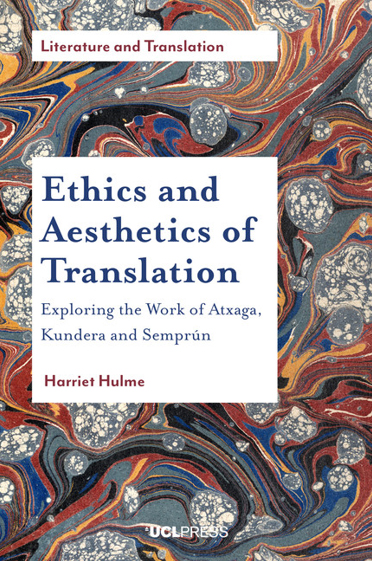Interview with Harriet Hulme
Interviewed by Jackie Militello
Harriet Hulme, of the HKU Society of Fellows in the Humanities, talks about her new book, Hong Kong, and her next project

Interviewer: Your forthcoming book, Ethics and the Aesthetics of Translation (UCL Press), sounds like an extension of your dissertation research. I’d be interested in hearing how you adapted the dissertation into a book.
Harriet Hulme: Yes, the book originated in my dissertation research. I spent about 6 months revising it before I submitted a book proposal, and then another 6 months making changes after the peer review process. The main changes I made were to the framing of the thesis – I completely rewrote the introduction and the conclusion, I added some new theoretical elements on the advice of the peer reviewer and I drew out the comparisons between the authors I discuss.
I had published some sections from one of the chapters before and so I had to check whether this was going to be a problem – in the end, there were no copyright issues and the amount of duplicated material wasn’t significant. But it’s something to keep in mind when you’re publishing during your PhD as there can be difficulties, especially as some journals don’t give you permission to reprint articles elsewhere.
I chose the publisher for two reasons. Firstly, UCL Press has a dedicated series on Literature and Translation, which felt like a great match for the book. Secondly, UCL Press is the first fully open access press in the UK. That means that while you can buy my book in hardback or paperback, you can also download it for free. Open access is something I feel really passionate about: it’s a way of making academic research available to everybody, anywhere in the world, without charge.
Interviewer: Turning your translation lens towards Hong Kong, have you discovered any themes of translation ethics in HK-specific works?
Harriet Hulme: The questions of translation ethics and bilingual writing, which are central to my book, are very relevant in Hong Kong. I know lots of people in HK are doing fascinating work on this – including some PhD students in the English Department whose work I’m really looking forward to reading! Since moving to HK I’ve been introduced to the work of several bilingual writers here who are doing amazing things with language and the idea of translation or untranslatability in a HK context – Louise Ho and Eddie Tay, for example. Because I don’t speak Cantonese or read Chinese characters, my interactions with these works are inevitably partial. But, for me, that’s what makes bilingual or multilingual texts so fascinating: they challenge us to reflect on whether the aim of reading is necessarily to understand everything we encounter, or whether, sometimes, it’s just as important to recognise the limitations of our understanding. In my book, that partiality was one of the issues I explored by looking at bilingual authors whose work I was only able to access in one language – Milan Kundera, for example, who has written in both Czech (which I can’t read) and French (which I can).
Interviewer: How has being in HK affected your views? Your reading? The academic conversations that you attend to?
Harriet Hulme: Being in HK has been incredibly productive for my work. It’s such a vibrant place in every way and I think the academic community is brilliant here – really engaged, supportive and inspiring. My new project is focused upon the question of hospitality and I’m really keen to explore different representations of hospitality, in an Asian as well as a European context. In that respect, I think my research can only be enhanced by drawing on the academic community in Hong Kong and I’m looking forward to where that will take me.
Interviewer: What’s next for you?
Harriet Hulme: At the moment, I’m working on an article focused on two collections of short stories written about refugees, Refugee Tales (2016) and Shatila Stories (2018). I’m exploring the ways both texts attempt to narrate the marginalised voices of the refugees whose tales are told, and how they approach that narration through multilingual strategies and forms of translation. I’m also in the early stages of setting up a collective translation project, The Babel Collective, which will explore the creative and proliferating nature of translation through a collaborative translation of a single text into as many languages as possible. I’ll be looking for help with that from the many multilingual people in Hong Kong, so – hopefully – I’ll be talking a bit more about that soon!

Our apologies, you must be logged in to post a comment.